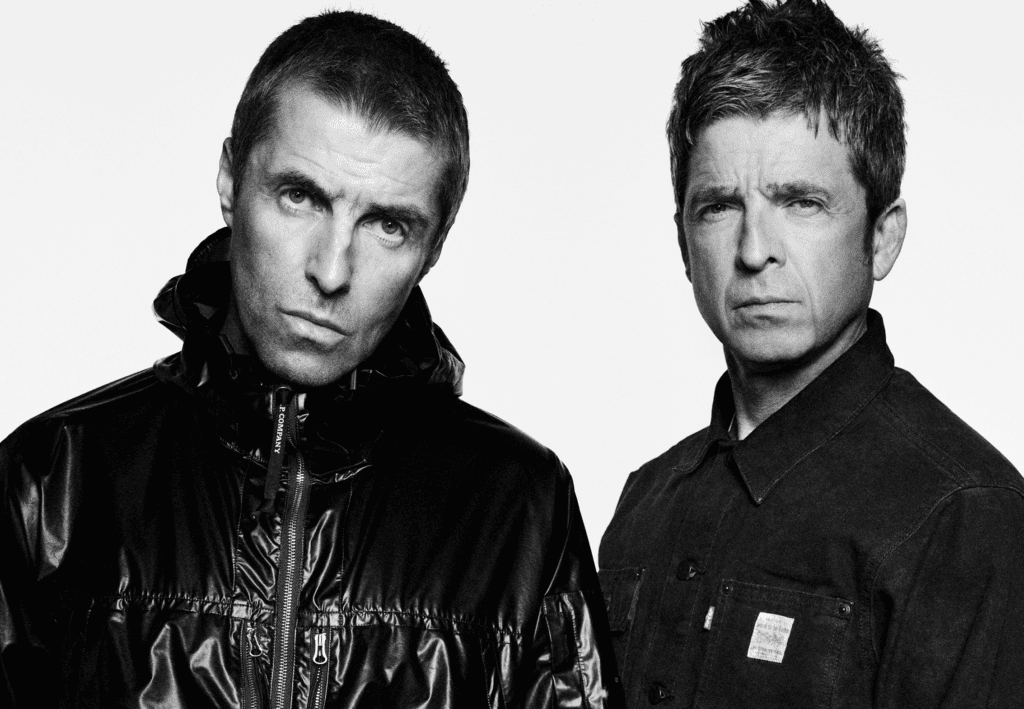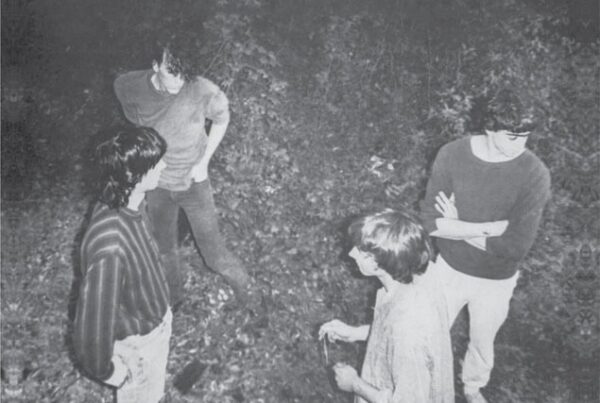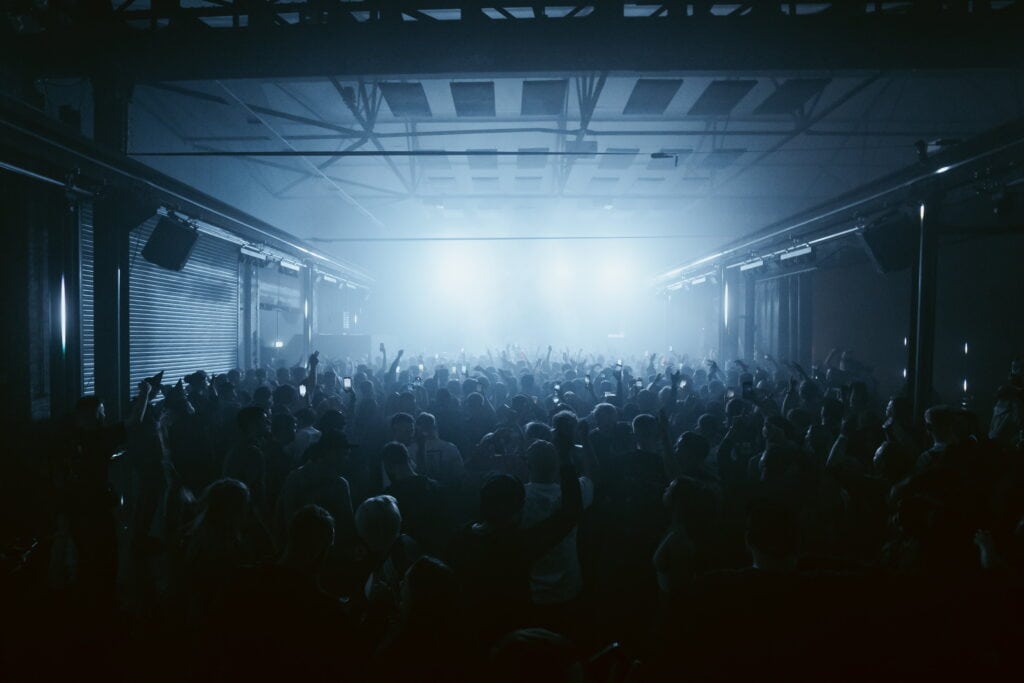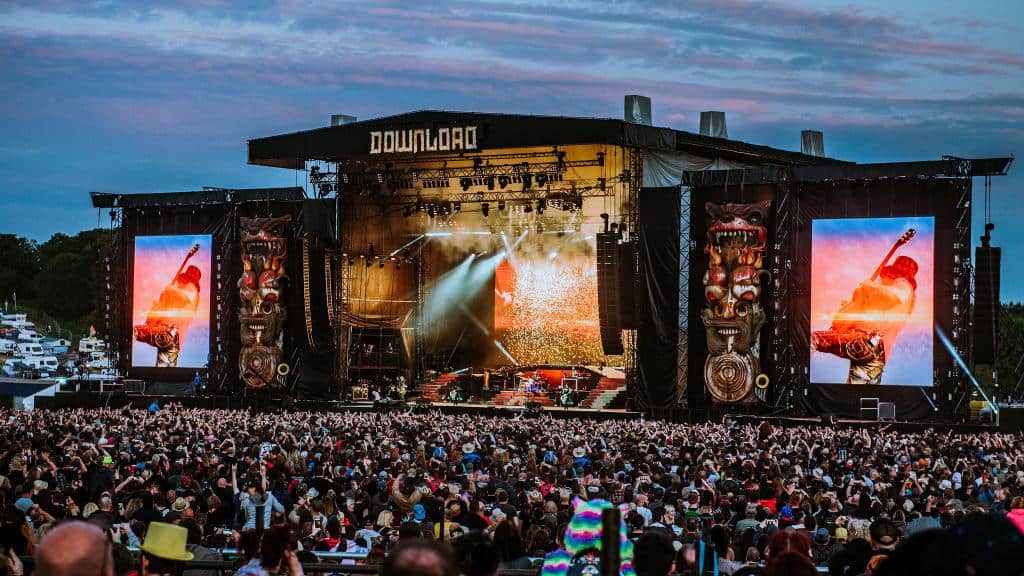Ticket prices tripling, websites crashing and social media uproar. The Oasis Ticketmaster frenzy was chaos, but just how have the fans become so marginalised in the live music industry?

There were many things more likely to be rolled out to the British public before an Oasis reunion, flying cars being an apt example. Nevertheless, the Gallagher boys quashed their beef and announced a bumper UK and Ireland tour, all was right with the world.
Yet sadly one thing became apparent that overshadowed the music, the Ticketmaster pricing scandal, and the realisation that this company has power over all of us as tickets leapt from £148 face value to upwards of £350.
This is far from the first time the American ticket-selling company has come under scrutiny, their irrefutable grip on the industry often gets highlighted when the biggest stars go on tour.
Two years ago, Bruce Springsteen was selling tickets for his tour, as far as live acts go it doesn’t get much bigger than him. This was when the controversy of ‘dynamic pricing’ was gaining real traction, causing tickets to skyrocket into the thousands (USD). A pricing model that we are all familiar with when it comes to airlines, hotels and Ubers, it’s simple supply and demand. When the demand is high those who hold the supply increase the price for their commodity. One thing we all know however is that music is different to anything else on the planet, so how did this pricing model find its way into the already fragile industry? And what does the future entail for fans and concert goers?
“Capitalism without competition is exploitation” – Joe Biden
The Federal Trade Commission says a “monopolist is a firm with significant and durable market power”. To say Ticketmaster’s market share is significant would be an understatement, according to insights from Yale University, Ticketmaster controls more than 70% of the market for ticketing and live events in America. The figure comes as no surprise to anyone who has tried to go to an event recently. It’s an awful statistic and would bode terribly for any market, it’s staggering when you take a step back to try and work out how on earth we got into this mess.
Around the early 90s tickets were distributed to ticketing booths, record stores, agencies and telemarketers. There were giants in the industry and even Ticketmaster broke into this market, but there was competition for the customer. As with many things, this was all flipped on its head following the birth of the internet. Ticketmaster started to blow away competition in the online world, but it wouldn’t be till 2010 that the ticketing industry would be condemned to death, after the Ticketmaster and Live Nation merger.
Who knows where we’d be had this not been permitted to happen, but instead, the two titans of the live music industry were allowed to become one. Live Nation were primarily promoters and worked with the venues and artists, by combining with Ticketmaster they essentially had a hand in every step of an artist’s tour. Alongside this, with Live Nation’s control over the majority of venues, they could insist on selling the tickets through themselves (ala Ticketmaster). The Department of Justice scrutinised this merger, but through lobbying and false promises not to strong-arm the industry, it miraculously went through.
Other ticketing sites such as See Tickets and Twickets were swept aside and struggled to compete with venues in tied-up contracts, we are now watching Ticketmaster enjoy a market share that they can’t even handle. The volume of fans wanting to see the big stars such as Springsteen, Taylor Swift and Oasis is too much for just one website to be able to handle. The result of this is a product being unfit to do its job and the customers taking the brunt of this.
This leads us to ‘dynamic pricing’, the cherry on top of the monopoly cake. Dynamic pricing or ‘surge pricing’ inflates ticket prices when there’s high demand. Aided by dominating the market share, Ticketmaster implemented this in an attempt to nullify touts (yes this is their actual excuse for it). By boosting the prices in high demand periods they stop people buying low and selling high.
They claim to help the artist avoid being used for profit… by becoming the touts themselves.
Options for customers are important in society as it drives competition and fair prices. Fans and customers have two options in this case, be ripped off, or don’t go to the concert.
Dynamic pricing is a Ticketmaster initiative that can be chosen whether to be implemented by the artist. Although working-class heroes such as Springsteen and the Oasis brothers aren’t taking a stand, this debacle pre-dates their tours, as Pearl Jam was the first to take on the ticketing titans.
On June 30th 1994, Stone Gossard and Jeff Ament of the Seattle grunge giants gave testimony to the Department of Justice believing Ticketmaster had a monopoly on the market. Backed by the likes of Aerosmith, R.E.M. and Neil Young, Gossard took to the stand.
“All the members of Pearl Jam remember what it’s like to be young and not have a lot of money”
“Many Pearl Jam fans are teenagers who do not have the money to pay 30 dollars or more that is often charged for tickets today”
Gossard’s testimony is as relevant today if not more, the problem has snowballed since the mid-90s, and Ticketmaster’s grip has only strengthened. Pearl Jam attempted to tour outside Ticketmaster’s strongholds (which proved impossible), and following the defeat, they had no option but to concede to the ticketing empire.
Through each scandal over this topic such as Springsteen, Taylor Swift, Oasis and Pearl Jam causing headlines, it seems like the problem is being dealt with. Right now, government action is being threatened, and the Competition and Markets Authority (CMA) has launched an official investigation. Nothing has happened between 1994 and 2024, is now the time in which we will see serious action be taken to this desperate situation?
With the ongoing cost of living crisis, it’s astoundingly out of touch to stand by an initiative purely designed to take more money out of the general public’s pockets. Over this summer it was announced that two Spanish football clubs would be adopting the dynamic pricing model, Ticketmaster has a growing involvement in the sport. As unsurprising as this is given the greed and wealth at the top of the game, it will be interesting to watch the reaction to the implementation of the pricing structure. Football fans will not take it lying down. In the UK, the Football Supporters Association (FSA) already released a statement advising clubs in the nation not to involve surge pricing in an already expensive ticket market.
“Never underestimate the potential for the most greedy owners in football to try and import terrible ideas from other industries to exploit supporter loyalty.”
The damning indictment on Ticketmaster is that they don’t just have a monopoly on any old industry, it’s music. They control an almost priceless live experience, a product which cannot be compared to other markets.
When Sky News covered the Oasis dynamic pricing scandal, a presenter compared it to being “at the deli counter at the supermarket and the cheese gets more expensive the longer you wait”. “It would put me off the cheese” joked Culture Secretary Lisa Nandy.
As whimsical as this analogy is, it also hits the nail on the head. These tickets can surge in price as far as Ticketmaster care to go, but you can’t get between a fan and their favourite artist, sadly they know and exploit this. If a price surges unreasonably for a flight, many people simply won’t purchase it, but a less rational side of the brain takes over for our idols. They are playing profit margins with an intangible passion inside people’s minds, and no one is there to challenge them.





